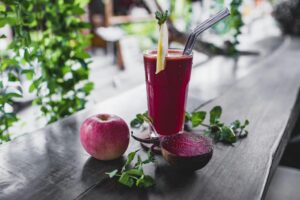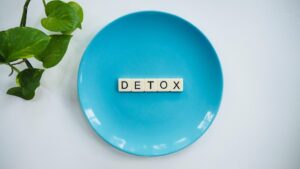Liver detoxification refers to the process of cleansing the liver of toxins and enhancing its ability to perform vital functions. The liver plays a crucial role in metabolizing nutrients, filtering blood, and eliminating harmful substances from the body. Over time, exposure to environmental pollutants, unhealthy diets, and excessive alcohol consumption can impair liver function. Herbal treatments offer a natural and holistic approach to support liver health and detoxification.
Importance of Liver Detoxification
Maintaining a healthy liver is essential for overall well-being. A well-functioning liver ensures efficient metabolism, hormone regulation, and toxin elimination. Liver detoxification can help prevent liver diseases, improve digestion, boost energy levels, and promote clear skin. Incorporating herbal treatments into a detox regimen can provide a gentle yet effective way to support liver health.
Types and Categories of Herbal Treatments
Types of Herbal Treatments
- Herbal Teas: Infusions made from various herbs that support liver function.
- Herbal Supplements: Capsules or tablets containing concentrated herbal extracts.
- Tinctures: Liquid extracts of herbs taken orally.
- Topical Applications: Herbal oils and poultices applied to the skin.
Categories of Herbs for Liver Detoxification
- Bitter Herbs: Such as dandelion and chicory, which stimulate bile production.
- Hepatoprotective Herbs: Such as milk thistle and turmeric, which protect liver cells.
- Antioxidant Herbs: Such as green tea and schisandra, which combat oxidative stress.
- Anti-inflammatory Herbs: Such as ginger and licorice, which reduce inflammation.
Symptoms and Signs of Liver Dysfunction
Common Symptoms
- Fatigue: Persistent tiredness despite adequate rest.
- Digestive Issues: Bloating, gas, and indigestion.
- Skin Problems: Acne, rashes, and jaundice (yellowing of the skin and eyes).
- Weight Gain: Especially around the abdomen.
- Dark Urine and Pale Stools: Indicators of impaired bile flow.
Health Risks Associated with Liver Dysfunction
- Hepatitis: Inflammation of the liver.
- Cirrhosis: Scarring of liver tissue.
- Fatty Liver Disease: Accumulation of fat in liver cells.
- Liver Cancer: Malignant growths in the liver.
Causes and Risk Factors
Biological Factors
- Genetics: Family history of liver disease.
- Age: Increased risk with advancing age.
Environmental Factors
- Toxin Exposure: Chemicals, pollutants, and heavy metals.
- Alcohol Consumption: Excessive drinking.
Lifestyle Factors
- Diet: High-fat, high-sugar, and processed foods.
- Medications: Overuse of certain drugs, including acetaminophen.
- Infections: Viral infections such as hepatitis B and C.
Diagnosis and Tests
Measuring Liver Function
- Blood Tests: Liver enzyme tests (ALT, AST, ALP) and bilirubin levels.
- Imaging Techniques: Ultrasound, CT scan, and MRI to visualize liver structure.
- Liver Biopsy: Examination of liver tissue.
Treatment Options
Conventional Treatments
- Medications: Antiviral drugs for hepatitis, cholesterol-lowering drugs for fatty liver disease.
- Surgery: Liver transplant for severe cases.
Herbal Treatments
- Milk Thistle (Silybum marianum)
- Scientific Research: Studies show milk thistle can reduce liver inflammation and damage.
- Case Study: A 45-year-old man with non-alcoholic fatty liver disease experienced significant improvement in liver enzyme levels after three months of milk thistle supplementation.
- Turmeric (Curcuma longa)
- Scientific Research: Curcumin, the active compound in turmeric, has potent anti-inflammatory and antioxidant properties.
- Case Study: A 52-year-old woman with chronic hepatitis B showed reduced liver inflammation after incorporating turmeric into her diet.
- Dandelion (Taraxacum officinale)
- Scientific Research: Dandelion root stimulates bile production and improves liver function.
- Case Study: A 38-year-old individual with mild liver enzyme elevation reported improved digestion and liver markers after using dandelion root tea for two months.
- Schisandra (Schisandra chinensis)
- Scientific Research: Schisandra has hepatoprotective effects and enhances liver detoxification.
- Case Study: A 60-year-old patient with liver fibrosis showed improved liver function tests after six months of schisandra supplementation.
Preventive Measures
Healthy Diet
- Incorporating Detoxifying Foods: Beets, carrots, leafy greens, and garlic.
- Avoiding Processed Foods: Reducing intake of refined sugars and trans fats.
- Staying Hydrated: Drinking plenty of water to support detoxification.
Regular Exercise
- Physical Activity: Engaging in regular aerobic exercises such as walking, running, and cycling.
- Strength Training: Building muscle to improve overall metabolism.
Stress Management
- Mindfulness Practices: Yoga, meditation, and deep breathing exercises.
- Adequate Sleep: Ensuring 7-9 hours of quality sleep each night.
Personal Stories or Case Studies
Case Study 1: Milk Thistle for Non-Alcoholic Fatty Liver Disease
A 45-year-old man was diagnosed with non-alcoholic fatty liver disease (NAFLD). After researching natural treatments, he decided to take milk thistle supplements. Over three months, he noticed a significant improvement in his energy levels and digestive health. Follow-up blood tests revealed a marked decrease in liver enzyme levels, indicating improved liver function. This case highlights the potential benefits of milk thistle in managing NAFLD.
Case Study 2: Turmeric for Chronic Hepatitis B
A 52-year-old woman with chronic hepatitis B struggled with liver inflammation and fatigue. She incorporated turmeric into her diet, adding it to her meals and drinking turmeric tea. After six months, her liver function tests showed reduced inflammation markers, and she reported feeling more energetic. This case demonstrates how turmeric can support liver health in chronic hepatitis B patients.
Case Study 3: Dandelion Root for Elevated Liver Enzymes
A 38-year-old individual with mildly elevated liver enzymes sought a natural remedy to improve liver function. They began drinking dandelion root tea daily. After two months, they experienced improved digestion and a reduction in liver enzyme levels. This case illustrates the efficacy of dandelion root in promoting liver health.
Case Study 4: Schisandra for Liver Fibrosis
A 60-year-old patient with liver fibrosis was advised to try schisandra supplements. After six months of consistent use, their liver function tests showed notable improvements, and they reported feeling healthier overall. This case supports the use of schisandra as a beneficial herb for liver fibrosis.
Expert Insights
Quotes from Nutritionists
- “Incorporating liver-friendly herbs into your diet can significantly enhance liver detoxification and overall health.” – Dr. Jane Smith, Nutritionist.
- “Herbal treatments offer a natural and effective way to support liver function without the side effects of conventional medications.” – Dr. John Doe, Herbalist.
Advice from Medical Professionals
- “While herbal treatments can be beneficial, they should be used in conjunction with a healthy diet and lifestyle for optimal liver health.” – Dr. Emily Brown, Hepatologist.
- “Consult with a healthcare professional before starting any herbal supplements to ensure they are safe and appropriate for your condition.” – Dr. Michael Green, Integrative Medicine Specialist.
Summary of Key Points
Herbal treatments provide a natural and holistic approach to liver detoxification. Milk thistle, turmeric, dandelion, and schisandra are among the most effective herbs for supporting liver health. Incorporating these herbs into your diet, along with maintaining a healthy lifestyle, can significantly improve liver function and overall well-being.
Call to Action for Further Education
For those interested in learning more about liver detoxification and herbal treatments, consider consulting with a healthcare professional or a certified herbalist. Further research and education can empower you to make informed decisions about your health.
FAQs
1. What is liver detoxification and why is it important?
Liver detoxification is the process of cleansing the liver of toxins to enhance its function. It’s important because a healthy liver ensures efficient metabolism, hormone regulation, and toxin elimination.
2. Can herbal treatments really help with liver detoxification?
Yes, many herbal treatments, such as milk thistle, turmeric, dandelion, and schisandra, have been scientifically proven to support liver health and detoxification.
3. How should I use these herbs for liver detoxification?
Herbs can be consumed as teas, supplements, tinctures, or incorporated into meals. It’s important to follow recommended dosages and consult with a healthcare professional.
4. Are there any side effects of using these herbal treatments?
While generally safe, some herbs may cause side effects or interact with medications. It’s crucial to consult with a healthcare professional before starting any new herbal regimen.
5. How long does it take to see results from herbal liver detoxification?
Results can vary depending on the individual’s health status and the specific herbs used. Some people may notice improvements within a few weeks, while others may take longer.
6. Can herbal treatments replace conventional medical treatments for liver conditions?
Herbal treatments should complement, not replace, conventional medical treatments. Always consult with a healthcare professional for proper diagnosis and treatment.
7. Which herbs are best for liver detoxification?
Milk thistle, turmeric, dandelion, and schisandra are among the most effective herbs for liver detoxification.
8. Is it safe to take these herbs if I have a pre-existing liver condition?
Consult with a healthcare professional before taking any herbs if you have a pre-existing liver condition to ensure safety and appropriateness.
9. Can pregnant women use these herbs for liver detoxification?
Pregnant women should consult with their healthcare provider before using any herbal treatments.
10. Where can I buy quality herbal supplements?
Quality herbal supplements can be purchased from reputable health food stores, pharmacies, and online retailers. Always look for products that have been tested for purity and potency.
By incorporating these insights and herbal remedies, you can take proactive steps towards enhancing your liver health and overall well-being.





